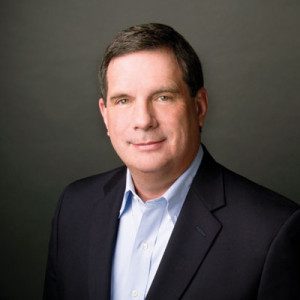I don’t mean that we’re “broken” in the sense that we’re rendered useless by our imperfections. The opposite is actually true. We’re made more useful, and we discover our greatest purpose through our pain and suffering.
 Brandon Cox
Brandon Cox
Sometimes it is difficult to implement visionary leadership into our day-to-day tasks. However, visionary leadership is biblical leadership.
 Fred Noble
Fred Noble
Leaders should aim to never be a bottleneck in the process of building a healthy and growing organization. Here are seven bottlenecks a leader must avoid.
 Ron Edmondson
Ron Edmondson
Though leaders are responsible for maintaining peace, it is also their job to occasionally be the architects of plans that disrupt status quo and complacency. If you want to affect change, consider these three reasons why you should first start by dropping a well-placed pebble in the pond.
 Phil Wood
Phil Wood
It’s the roadblocks in leadership which we can avoid that tend to be most damaging. They detract from growth and destroy organizational health. If they aren’t addressed, it can set some leaders back months, years, even an entire career.
 Ron Edmondson
Ron Edmondson
As our idols come into the light we may be better able to let them go. 2020 can lead us to an appreciation of life, restored relations with those around us, recognizing personal strengths we did not know we had and realization of new possibilities. Such post-traumatic growth can be considered as pure joy.
 Rick James
Rick James
More and more churches are struggling because they are going longer periods of time without a pastor. So why are search committees and appointment processes taking so much longer? I see six clear reasons.
 Thom S. Rainer
Thom S. Rainer
Leaders are constantly dealing with their own version of rip currents – unseen, powerful forces that will pull them away from where God is leading them and their church or ministry. The force may be direct opposition that comes from within or outside the organization. Or it may be the subtler temptation to take the easy path.
 Mike Bonem
Mike Bonem
Whether we’re leading the whole church or just the band, leadership requires our best selves and God’s amazing, Spirit-given grace.
 Brian Thorstad
Brian Thorstad
Satisfied “customers” – Despite the many books and blogs, conferences and coaches that offer opinions on this topic, this holy grail still eludes the grasp of most companies. Why? Perhaps, the most effective solution is not found in organizational leadership, but spiritual leadership. What we need is the fruit of the Spirit (Galatians [...]
 Robert Netzly
Robert Netzly
As YWAM Minneapolis began pondering their location, they realized that one base for the city is not enough and not even relevant to the needs that God has brought to their doorstep. God is bringing the fields of harvest to our doorstep.
 Timothy Svoboda
Timothy Svoboda
Here are seven fundamental truths about God’s intention for the workplace.
 Rob Streetman
Rob Streetman
Here are some leadership traits I would need to change. What tendencies do you want to change?
 Chuck Lawless
Chuck Lawless
People often quit when they hit resistance. You might be discouraged and ready to give up. But should you?
 Russell Moore
Russell Moore
In the world that we live in and the culture that we breathe and consume, we easily equate two things that need to be kept separate – progress and movement.
 David Appelt
David Appelt
The shocking events of recent weeks have highlighted our nation’s troubling history with slavery and systemic racism.
As a result, many Christians want to do something about racism. But what? What is the right response? What does the Bible really say about a Christian’s role in social change?
You may have heard that the Bible [...]
 Malcolm Webber
Malcolm Webber
"Change starts with commitment, but that's only the first step in a long climb."
 Rick James
Rick James
Many Christian workers make the mistake of assuming that they are earning shares in the ministries they work for through their hard work and dedication. It seems logical. God is the sole owner of the church. Always has been. Always will be. He paid for it with the priceless blood of Christ.
 Brian Thorstad
Brian Thorstad
If you’ve ever had to raise money as a church planter or cross-cultural missionary, you know how awkward writing support letters can be.
 Cole Brown
Cole Brown
People of the earth seem to be so lonely and so full of angst about whether or not there is anyone else “out there.” Why did God create humans with this God-sized hole in our hearts?
 Jim Brenneman
Jim Brenneman
 Brandon Cox
Brandon Cox



 Fred Noble
Fred Noble  Ron Edmondson
Ron Edmondson  Phil Wood
Phil Wood  Rick James
Rick James  Thom S. Rainer
Thom S. Rainer  Mike Bonem
Mike Bonem  Brian Thorstad
Brian Thorstad  Robert Netzly
Robert Netzly  Timothy Svoboda
Timothy Svoboda  Rob Streetman
Rob Streetman  Chuck Lawless
Chuck Lawless  Russell Moore
Russell Moore  David Appelt
David Appelt  Malcolm Webber
Malcolm Webber  Cole Brown
Cole Brown  Jim Brenneman
Jim Brenneman